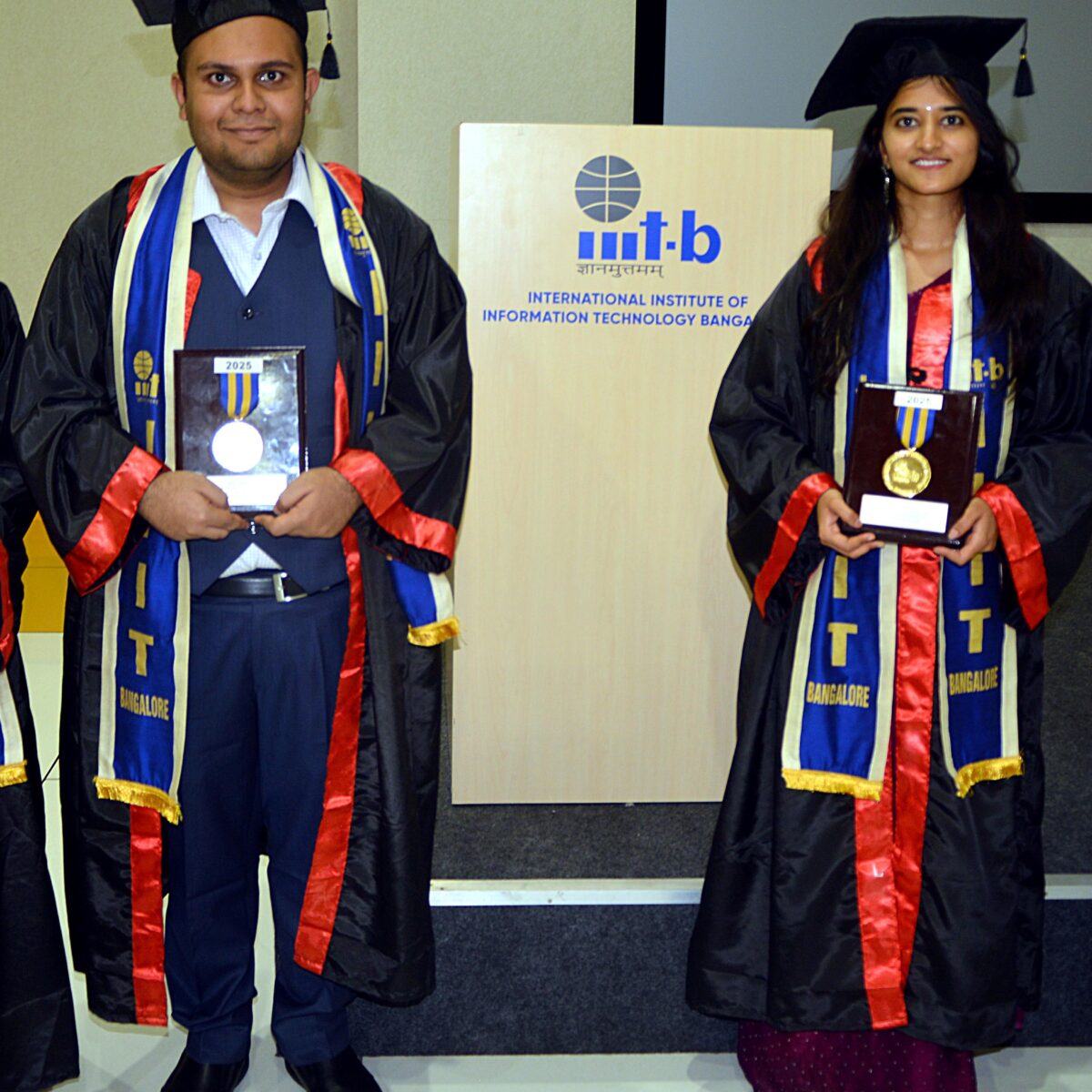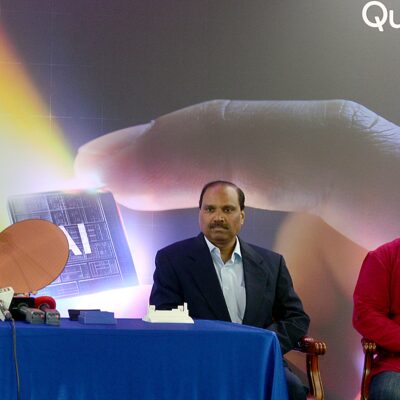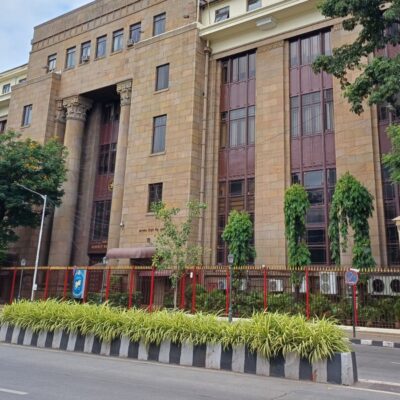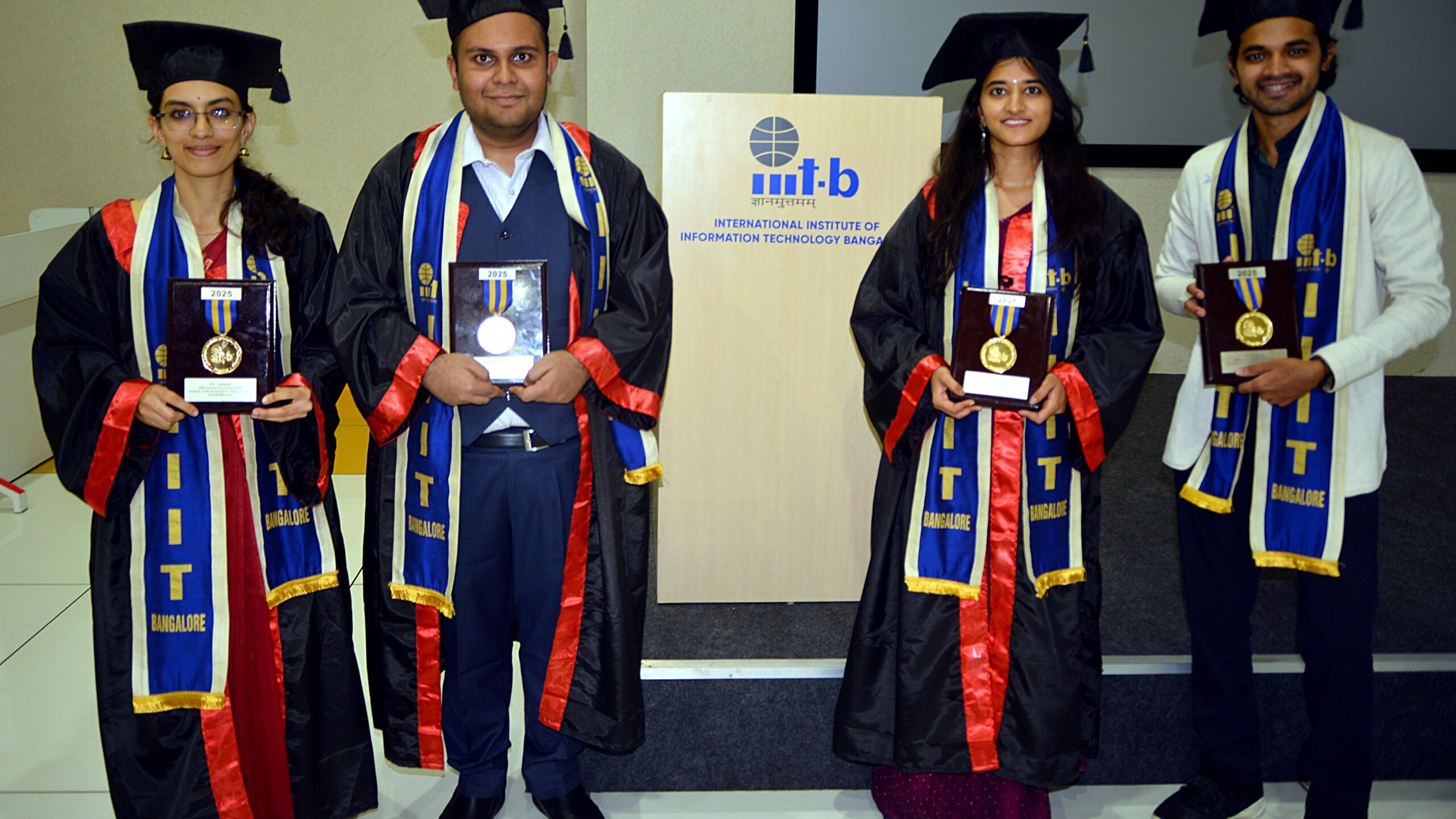
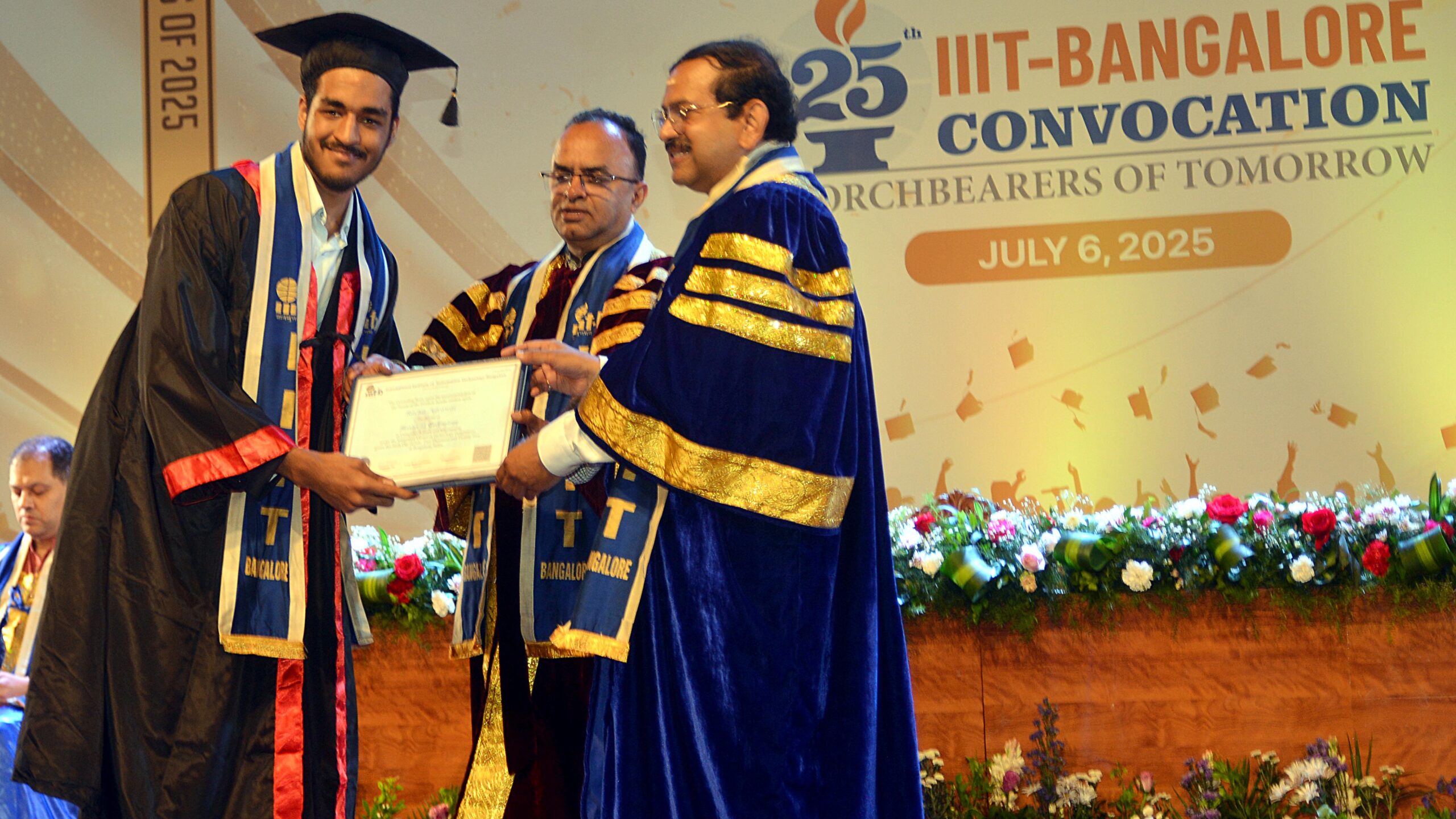
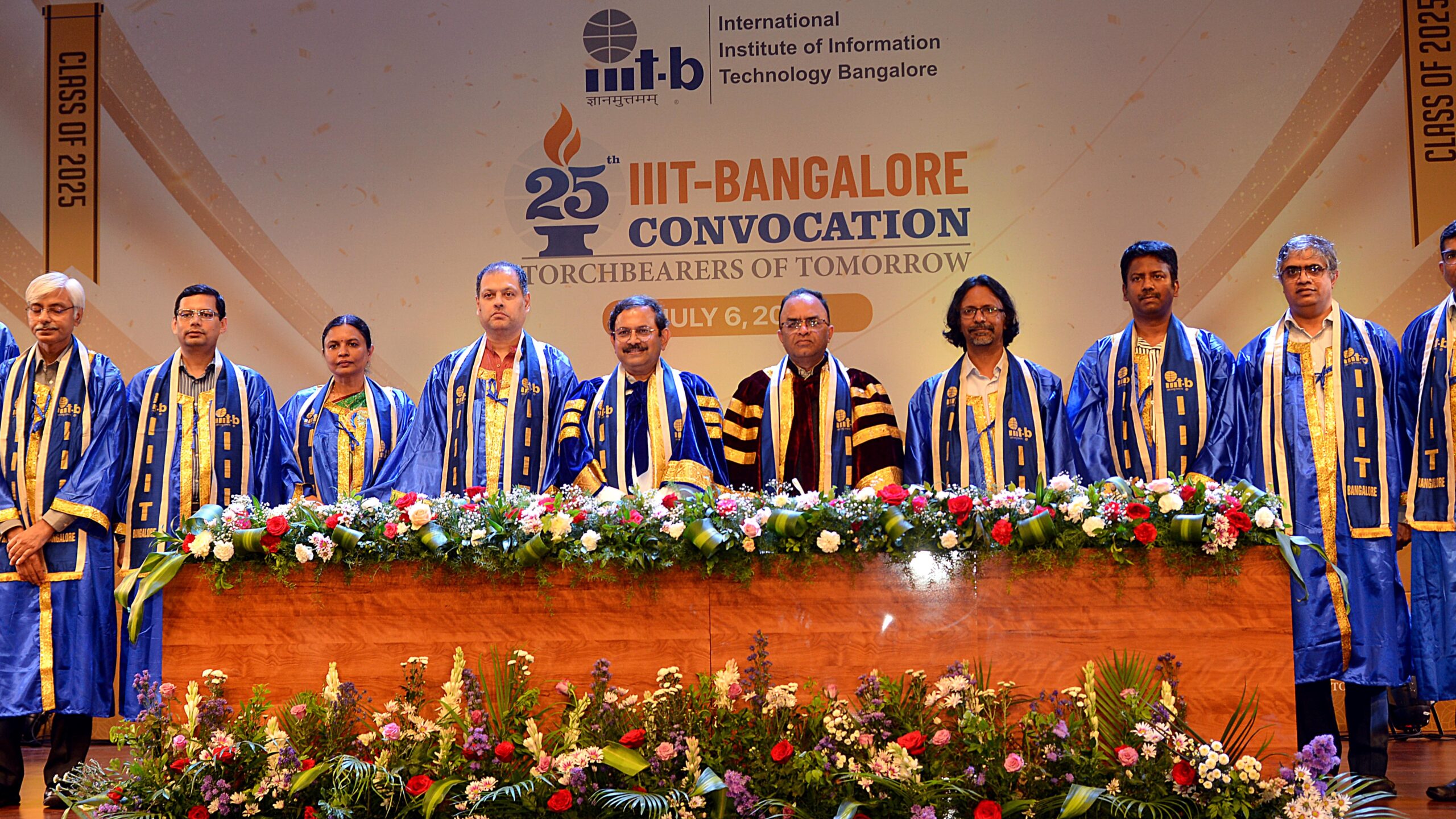
Bengaluru: In a landmark celebration of innovation, inclusion, and excellence, the International Institute of Information Technology Bangalore (IIIT-B) has firmly established itself as a global powerhouse in Digital Public Infrastructure (DPI), with its groundbreaking technologies now set to impact nearly 1 billion people across 27 countries.
The announcement was made at the institute’s 25th convocation ceremony, a milestone event graced by academic and industry luminaries.
At the heart of IIIT-B’s global influence is MOSIP (Modular Open Source Identity Platform) — a secure, open-source digital ID system developed in-house that has already enabled the issuance of 136 million digital IDs worldwide.
Adopted by 27 nations, MOSIP is more than just a technology platform; it is a beacon of India’s capability to design ethical, inclusive, and scalable digital solutions for the world.
Speaking at the ceremony, Director Prof. Debabrata Das emphasized the institution’s growing global footprint thus: “It is a proud moment for all of us to know that MOSIP is a homegrown R&D product from India, already touching the lives of 135 million people in 27 countries. IIIT-B is honoured to serve as a lighthouse institution, championing India’s expertise in open digital systems.”
This vision is being spearheaded by the Centre for Digital Public Infrastructure (CDPI) at IIIT-B, a non-profit think-and-do tank that has advised over 60 countries across Asia, Africa, South America, and Europe. The Centre has become a trusted advisor to governments on user-centric data sharing and credentialing technologies using verifiable credentials.
Global recognition and cutting-edge initiatives
MOSIP’s impact and ethical approach to digital identity systems have garnered global acclaim, winning the International Future of Government Award (2024) and the “Champion” title at the World Summit on the Information Society (WSIS) in Geneva, hosted by the ITU.
IIIT-B’s influence reached further when Prof. Das addressed the UN Citizen’s Stack Conference, showcasing the institute’s DPI models and their adaptability for the Global South. Riding on this momentum, IIIT-B also launched INJI, a next-generation, privacy-first credentialing and data exchange platform now adopted by four countries.
Adding to its DPI leadership, the newly established Centre for Open Societal Systems (COSS) is driving innovation in open digital tools for societal transformation. These initiatives are generously supported by global organizations including eKStep Foundation, Gates Foundation, Pratiksha Trust, and NORAD.
Transforming lives beyond borders — and disciplines
The impact of IIIT-B isn’t confined to DPI. The institute’s E-Health Research Centre, in collaboration with NIMHANS, plays a pivotal role in India’s Tele-MANAS initiative, which provides multilingual tele-mental health support and has already handled over 2 million calls.
As part of NITI Aayog’s State Support Mission, IIIT-B has been named a Lead Knowledge Institution (LKI) to drive data-based policy interventions for Indian states.
In collaboration with Microsoft Research India, IIIT-B also launched the AI Innovation and Inclusion Initiative (A4I) through its Centre for Accessibility in the Global South (CAGS). The initiative uses AI to build large-scale Digital Public Goods that focus on sustainability and inclusion for underserved populations.
On the connectivity front, the IIITB COMET Foundation is shaping India’s 5G and future 6G landscape with innovations like 5G-Advanced base stations and Reconfigurable Intelligent Surfaces (RIS) to bridge coverage gaps and cut costs.
A silver jubilee marked by historic student achievement
While the institute celebrated its global milestones, it also recognized individual brilliance at home. A student from the Integrated M.Tech programme achieved a record-breaking placement offer of ₹1.45 crore per annum — the highest in the institute’s 25-year history.
This achievement underlines IIIT-B’s growing reputation as a centre of excellence for cutting-edge tech talent.
The convocation ceremony saw 372 students graduate and was presided over by Kris Gopalakrishnan, Padma Bhushan award-winner and Chairman of IIIT-B’s governing body. Distinguished guests included Prof. Govindan Rangarajan, Director of IISc Bangalore, and Dr. Venkat Padmanabhan, Managing Director of Microsoft Research India.
Building the future: Infrastructure, sustainability, and research
In a major infrastructure leap, IIIT-B’s governing body has sanctioned ₹817 crore for developing a new east campus over the next seven years, reinforcing its long-term growth trajectory.
Additionally, for the third consecutive year, the institute has received the International Green University Award, recognizing its commitment to sustainability and alignment with UNESCO’s Greening Education Partnership.

